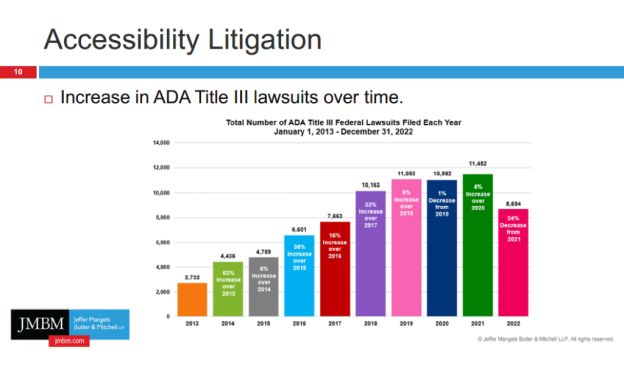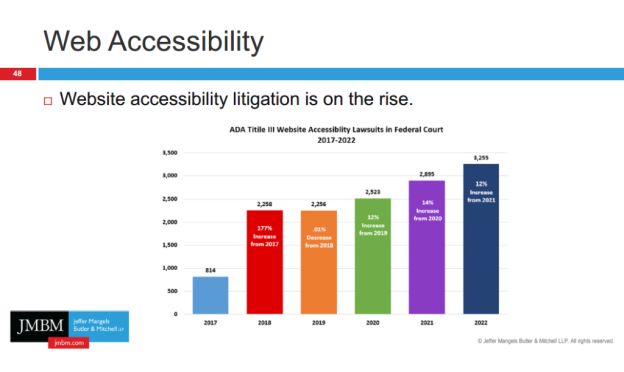The Americans with Disability Act (ADA) is an important piece of legislation guaranteeing equal access to public facilities to the nearly 60 million people with disabilities in the US today. Stuart Tubis, a partner in JMBM's ADA Compliance and Defense practice, recently presented on why accessibility legislation is something all business owners should be aware of, and how many lawsuits have shifted focus to online spaces instead of brick-and-mortar locations.
Hotels in particular must be familiar with the requirements of the ADA in order to accommodate the needs of disabled guests on their properties. Unlike building codes or other laws governing public spaces, the ADA is enforced by lawsuits brought by individuals who feel their access to a public business or building is not adequate or equal.
Accessibility lawsuits have risen significantly over the last 10 years:

Remedies for noncompliance can be significant, including court orders to remove barriers, attorneys' fees to prevailing plaintiffs, and, in California, statutory damages of $4,000 per visit.
Website accessibility lawsuits have risen steadily in the last few years; these are suits alleging that a business' website does not comply with ADA guidelines for disabled users. Courts have interpreted the ADA as requiring accessibility online, but as of yet there are no official standards.

Hotels depend on their online presence to drive reservations, and should be sure their websites are compliant – both to accommodate disabled guests and to avoid becoming a target of litigation. Stuart's full presentation is available for download here.
The content of this article is intended to provide a general guide to the subject matter. Specialist advice should be sought about your specific circumstances.


